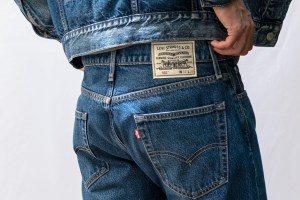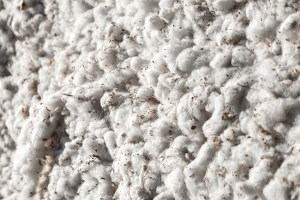There’s a quote attributed to Mahatma Gandhi – “Be the change you wish to see in the world”. When it comes to taking care of the environment, we all know that change starts in the home or workplace and it all comes down to the choices we make towards sustainability.
Sustainability means focusing on the needs of today, without compromising the future – it aims to protect the environment, as well as human health and ecology. It drives innovation, but not to the detriment of life and it ensures that the planet we love so much, is still going to be there for future generations.
In the fashion industry, sustainability means creating clothing, shoes and accessories, with as little impact on the environment and people as possible.
The Fashion Industry’s Impact
A $2.5 trillion industry, fashion is the second largest polluter in the world, behind oil. The biggest contributing factors are water pollution and water consumption – and it’s been recorded that the fashion industry accounts for 20% of global water pollution. The fashion industry also impacts the environment with high energy wastage and greenhouse gas emissions. Some companies within the industry are also reported to provide less than comfortable working conditions.
Fortunately, though, the fashion industry is learning and changing.
Natural Materials & Ethical Sourcing
In order to create a more sustainable fashion industry, it’s important that the big players lead by example by abandoning traditionally unsustainable practices and adopting more sustainable ones.
One of these companies is Levi’s, who is committed to sourcing environmentally friendly materials to reduce their environmental impact, and introducing initiatives that are designed to improve the lives of the people who work for them. The Worker Well-being initiative provides health services, financial security and gender equality for employees, no matter where in the world they reside.
Levi’s Water<Less™ technologies allow them to make their products using up to 96% less water in the finishing process; while the Wellthread™ range is a collection of their most sustainably designed products and serves to experiment and test the value of new sustainability initiatives. This collection focuses on four principles – materials, people, environment and process.

Recently introduced to Levi’s broader product range are innovative hemp and wood fibres that are kinder on the environment whilst still producing the same look and feel that you love (and expect) from the inventor of the blue jean!
- Cottonised hemp – created to save water, this fibre comes from natural hemp plants that require less land and fewer pesticides than cotton;
- Sustainably harvested wood pulp – two materials now featuring in their Sustainably Soft range, including:
- Tencel™ – a sustainable version of viscose / lyocell: soft and breathable; and
- Ecovero™ – a viscose produced from wood pulp, from certified sustainable forests.

The Future
Many companies around the world are trying to do their part for sustainability, but with a reputation that is only second to oil production, the fashion industry needs to do more. For that to happen, both consumers and companies need to work together. With companies like Levi’s doing everything they can to produce sustainable clothing that lasts a lifetime, the future is brighter.







